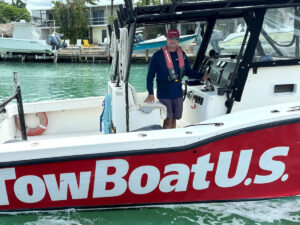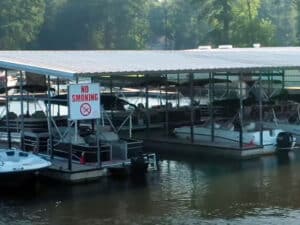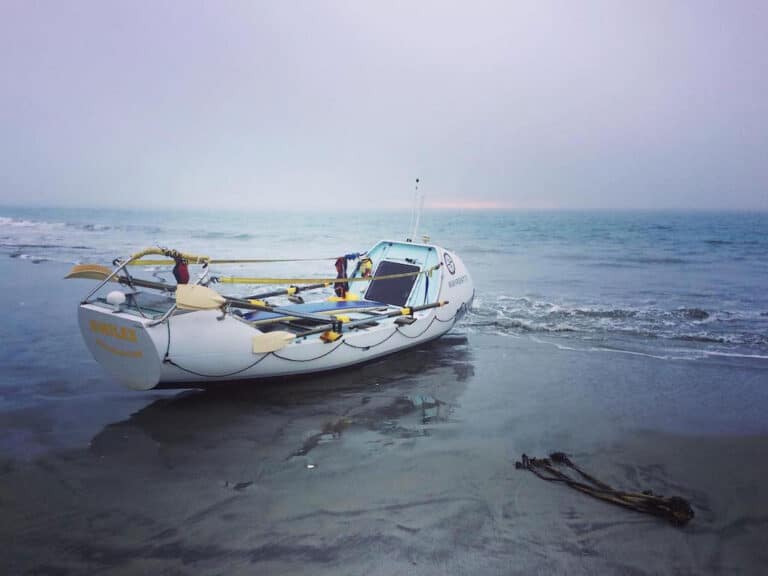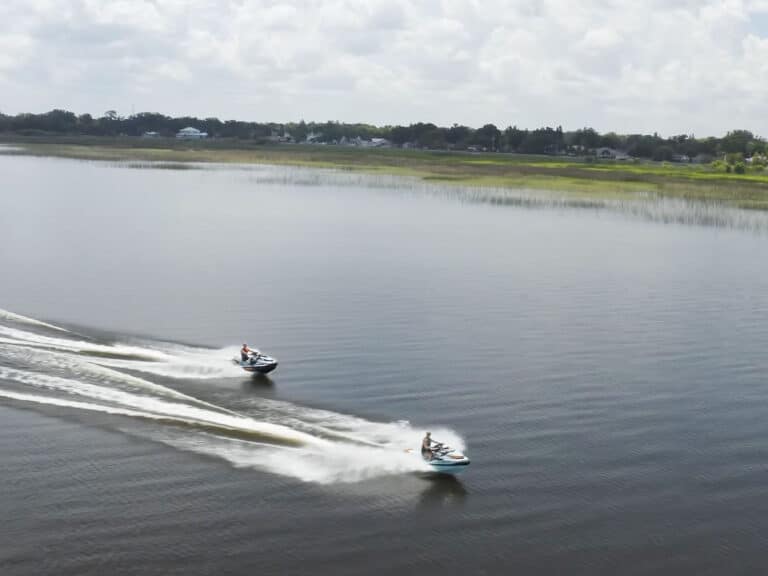
As I am writing this, there is a YouTube video that’s gone viral depicting a small boat that almost gets run down by a tanker as a result of running out of fuel. There is just no excuse for running out of fuel. At the same time, even the best captains are human and stuff happens. With that in mind, let’s take a look at four techniques you can employ to combat running out of fuel.
Rule of Thirds
Older than a pebble on the bottom of the sea, adherence to this rule begins by calculating the amount of fuel needed to get to a destination and making sure that amount equals no more than one-third of your tank’s capacity. Reserve another third to get home from your destination. The final third is your reserve capacity to be used for unforeseen circumstances.
Rough Water
If the wind comes up and waves build, you will need more fuel to return home than you would if the seas remain calm, so keep abreast of the weather. I can personally attest that it’s less stressful to wait for weather than it is to get out “in the middle” somewhere and hope you can make it back.
Trim Up
Boat fuel tanks are properly installed when the fuel pickups are on the aft end of the tank. Since boats normally run with some inclination (bow rise), that proviso allows your engine to keep sucking fuel longer than it could if the tanks were fitted with forward-mounted pickups because the contents of the tank will pool higher in the aft end aboard a boat that’s underway. Knowing this, you might want to keep the boat on plane and keep the bow up if you suddenly notice that the fuel-gauge reads empty. A common temptation is to slow down to idle — the intuitive choice. There are no guarantees; just keep this in mind.
Plan B
If, while out on the water, you suddenly remember that you forgot to fuel up, beat yourself up about the mistake later. The first course of action to take is to check and see if there is a closer, alternative port or landing that you can return to. In fact, it’s always prudent to have a Plan B in mind because, even with enough fuel, sometimes weather can prevent you from (safely) returning to your point of departure. Prudent skippers always give themselves options.
Log It
Historically, boat fuel gauges are about as reliable as a free pen from the bank. Aboard big boats and yachts owned by those with unlimited budgets, the tanks are fitted with sight gauges, which are glass tubes installed on the side of the tank that allow you to eyeball the actual fuel level in the tank. Sight gauges are only allowed for diesel, but I know that these big-boat skippers also keep a fuel log, noting the date, engine hours, and amount of fuel purchased. There is no reason to trust a gauge, your memory or any one thing.
At best, running out of fuel is an inconvenience. At worst, it can take the lives of you and your crew. Take the steps required to reduce the chances of it happening.
The U.S. Coast Guard is asking all boat owners and operators to help reduce fatalities, injuries, property damage, and associated healthcare costs related to recreational boating accidents by taking personal responsibility for their own safety and the safety of their passengers. Essential steps include: wearing a life jacket at all times and requiring passengers to do the same; never boating under the influence (BUI); successfully completing a boating safety course; and getting a Vessel Safety Check (VSC) annually from local U.S. Coast Guard Auxiliary, United States Power Squadrons(r), or your state boating agency’s Vessel Examiners. The U.S. Coast Guard reminds all boaters to “Boat Responsibly!” For more tips on boating safety, visit www.uscgboating.org.








